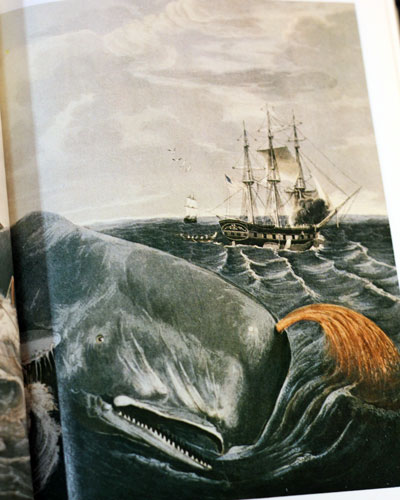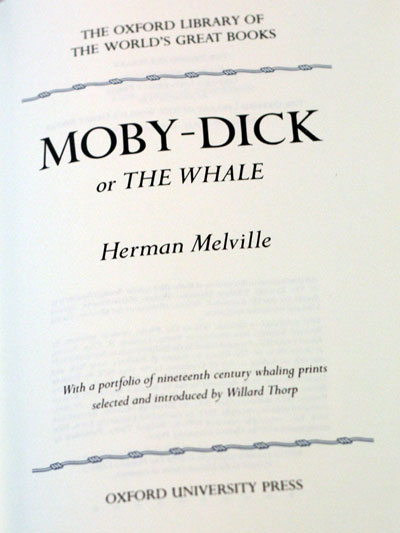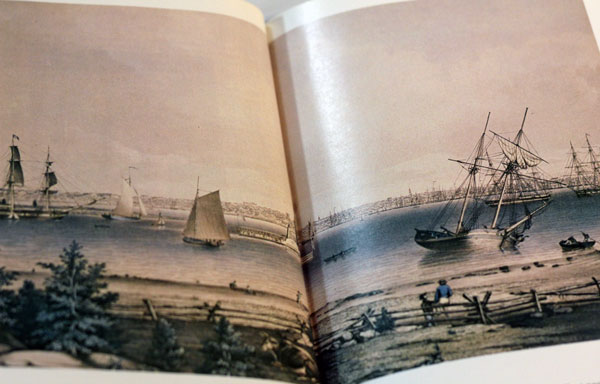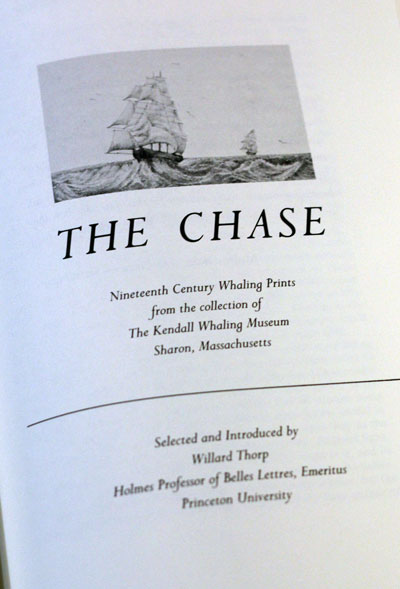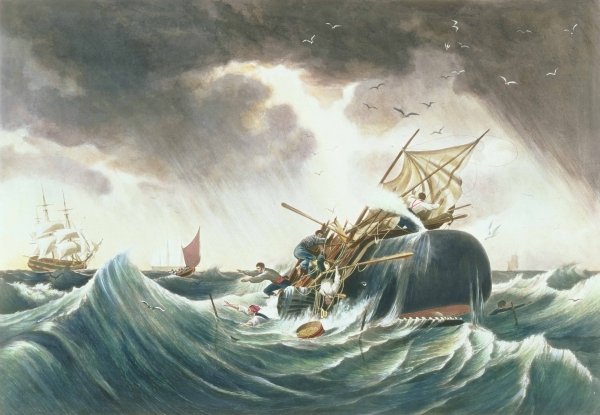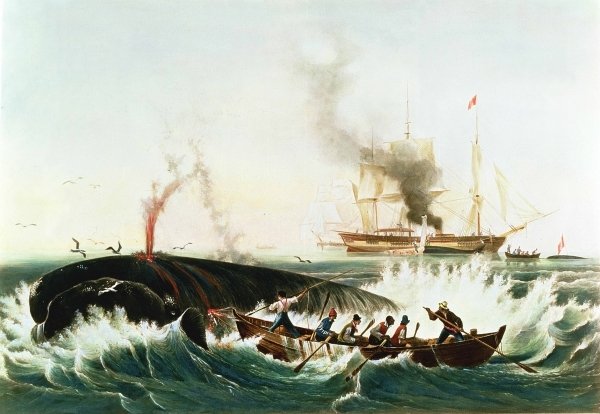Note: the delicate and exquisite centre panel with deep embossing on black leather is a wonder to behold and nearly impossible to photograph. Best examined in person to appreciate the remarkable quality.
This book features:
- Full top-grade leather binding
- Genuine 22k gold gilt to all edges, front design, spine, and back
- Marbled endsheets
- Satin bookmark, sewn-in
- Hubbed spine with raised bands
- Smyth-sewn binding for durability
- Premium acid-neutral archival paper that will not yellow
FRANKLIN LIBRARY’S FINEST
The Franklin Library, the publishing division of The Franklin Mint, was of course, at one time, the nation’s largest publisher of great books in fine bindings. Founded in 1973, it ceased publishing in 2000. Its early editions ~ fully bound in genuine premium-grade, hand-cut leather, selected for quality of grain and texture ~ were designed and bound by The Sloves Organization, Ltd., an affiliate of the mint, whose bindery was one of the few in the world devoted exclusively to the crafting of fine leather books.
Printed from 1981 to 1985,* the Oxford/Franklin volumes are gorgeous ~ absolutely stunning in their production qualities. Oxford University Press, in fact, specially chose the publishing division of The Franklin Mint to design and produce its World’s Great Books series because of Franklin’s unsurpassed skill in achieving a premium-quality product: each Oxford book must also be ‘a wonder’ in the finest of bookbinding traditions and, if possible, exceed Franklin’s high standard. By that prestigious election, Franklin thus was also doubly honored and formally recognized for the awesome reputation it had achieved in the publishing world throughout the decade of the 1970s.
It is because of that ‘brief, shining moment’ in publication history that these fine classic Oxford/Franklin editions generally surpass anything else ever produced either before or after that time by any of today’s renowned publishing giants. Relatively few titles in the multi-edition Great Books series were given the fabulous full-leather treatment; most were quarter-bound volumes ~ very lovely indeed by the lights of their own publication merits ~ but still unable to boast the same ‘Rolls Royce’ elegance of their full-leather counterparts.
About the book:
Herman Melville’s tale of the hunt for the white whale, Moby Dick, is one of the greatest novels of all time. It is at once an adventure story of the high seas, and an exploration of the uncharted regions of the soul. Neglected in Melville’s day, Moby-Dick is now acknowledged as a sublime work of the imagination, an American Odyssey.
‘Call me Ishmael’ is one of the most famous opening sentences ever written. Moby-Dick’s narrator Ishmael is a drifter and former merchant seaman, who departs Nantucket on a perilous whaling mission to the South Seas. With him on the Pequod are the cannibal Queequeg and ‘a heathen crew … whelped somewhere by the sharkish sea’. At the helm is Captain Ahab, whose soul is bent on hunting and killing the great white whale that cost him his leg in an earlier encounter. As they voyage south, Ahab’s obsession takes his crew deeper into the abyss in desperate pursuit of ‘the gliding great demon of the seas of life’.
About Melville:
Herman Melville was born in New York City to wealthy parents of New English and Dutch origin. When his father died a bankrupt, Melville left school, aged 12, to work as a bank clerk. He attended night school and became a teacher before signing on as a merchant seaman. In 1841, he boarded the whaling ship Acushnet. After a year and a half, Melville jumped ship and spent a month among a tribe in the Marquesas Islands, before making his way home via Hawaii and Peru. In New York, he married and published several novels, to instant success. His meeting with Nathaniel Hawthorne in 1850, while he was writing Moby-Dick, was a pivotal moment and filled him with inspiration. Moby-Dick’s reception was mixed, and his following novel Pierre was a failure. Melville’s reputation faded, and his later years were shadowed by his son’s suicide and his own ill-health. He worked as an inspector in the New York Customs House for nearly 20 years until his death in 1891.


